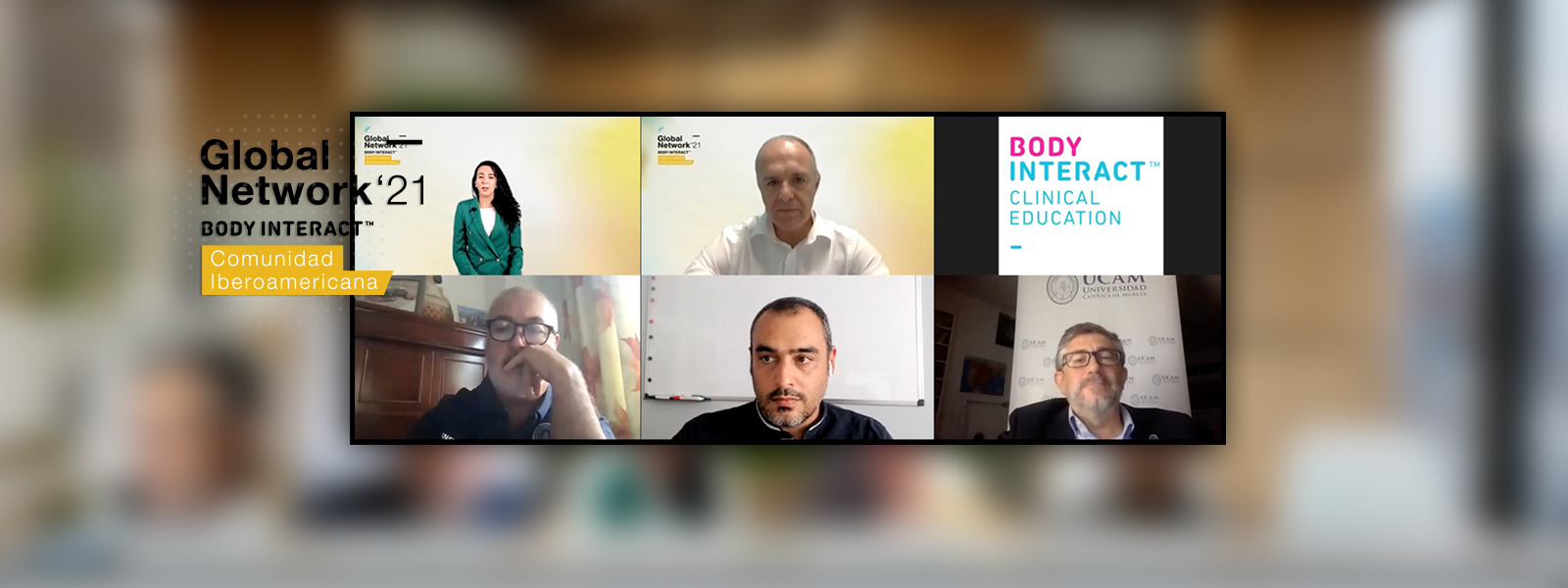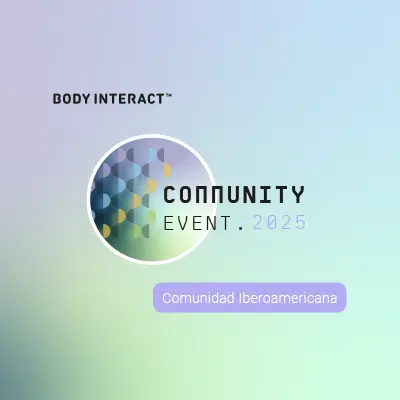
Presentation by Professor Pablo César García-Sánchez
Professor Pablo César García-Sánchez is an educator, physiotherapist, and a specialized consultant in clinical reasoning, innovation, and technology. Assistant Professor at the Physiotherapy Department at Universidad Europea at Madrid since 2006, Professor Pablo García-Sánchez and his colleagues were pioneers in the development of the Body Interact scenarios for the physiotherapy curriculum and this presentation provides us an overview of the introduction of those scenarios in the curriculum.
The complexity of work performed in the area of physiotherapy has expanded and, not only, these professionals deal with simple clinical scenarios, for which the problem of the patient and the way to deal with it are well-known, but more and more what physiotherapists are encountering are complex, multifactorial clinical situations, that evolve, and many time is not well defined.
In addition to the complexity, also the context in which these professionals work is expanding – clinical (healthcare institutions and home care), sports, telemedicine, intensive care units, and emergencies. So, many new challenges have emerged, both for students and teachers regarding this area, pushing teachers to find new ways to promote the essential clinical reasoning skills in students so that the new professionals have the required abilities for the upcoming demands. To all of these identified demands and challenges, clinical reasoning features as the glue for the required knowledge and clinical abilities.
It is in this context that the design and development of clinical scenarios start its process.
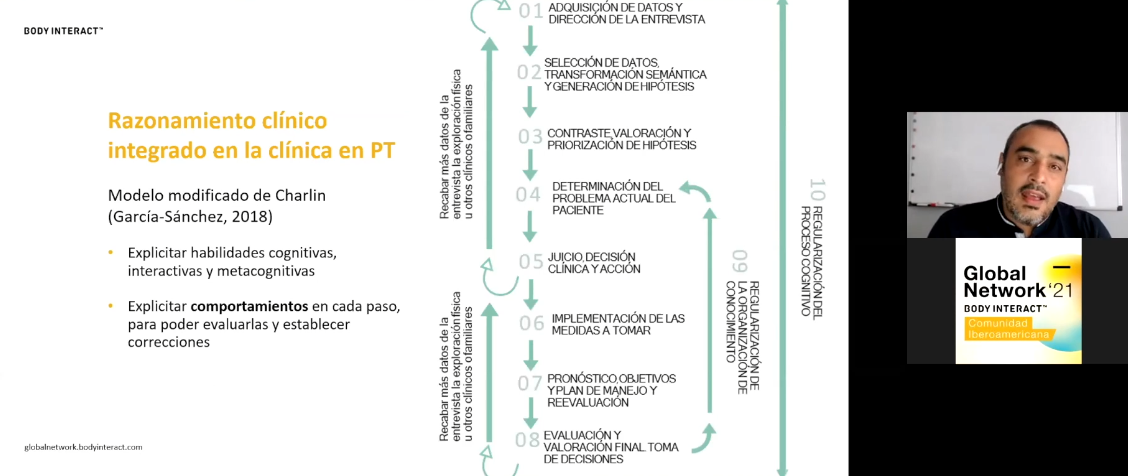
Proposed model and stages of clinical reasoning development in physiotherapy
For this virtual clinical scenario development some topics were taken in particular consideration:
- What is/are the key-phase(s) of the clinical reasoning process that the scenario will focus on?
- What are the learning objectives?
- What difficulty level are we aiming for?
- What is the role of the facilitator in the debriefing of the scenario?
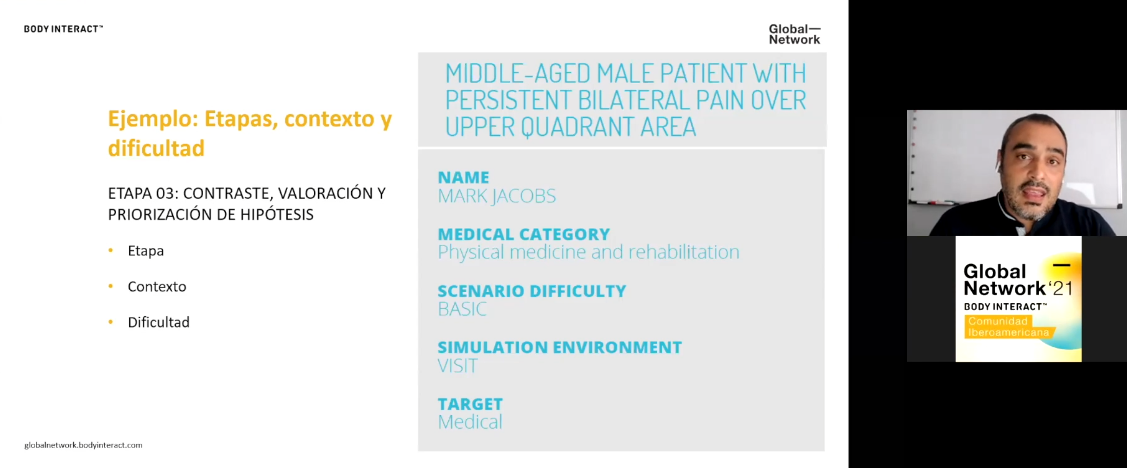
Creation of a virtual clinical scenario with Body Interact
Professor César García-Sánchez also emphasized the relevance of metacognition and how it is connected to stages of regulation of knowledge organization and regulation of the cognitive process (stages 9 and 10 in image 1).
To finalize this topic, Professor César García-Sánchez mentioned how Body Interact helps students to self-assess what they have performed, painting a map of correct decisions, mistakes, and misconceptions, forging a path for expertise.
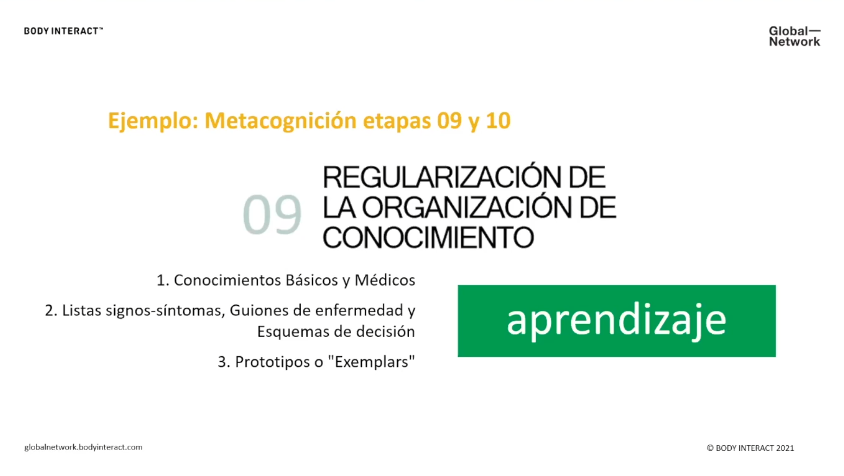
Metacognition
Do you want to know more about this process of virtual patient’s clinical scenarios development for the physiotherapy curriculum?
Take a look at the recording:
by Daniela Abreu – Body Interact Instructional Designer

